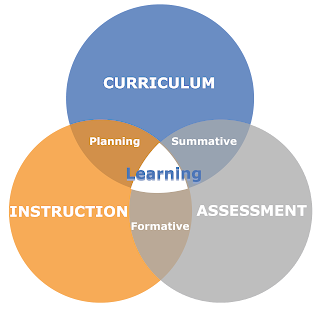Familiar names!
1. Homer (8th century BCE) - "Iliad" and "Odyssey" (circa 8th century BCE), epic poems containing valuable educational themes and lessons.
2. Socrates (4th century BCE) - No specific published work, but known for his contributions to questioning and critical thinking.
3. Plato (4th century BCE) - "The Republic" (circa 380 BCE), addressing educational philosophy and the ideal curriculum.
4. Aristotle (4th century BCE) - "Nicomachean Ethics" (circa 350 BCE), exploring moral education and the development of character.
5. Quintilian (1st century CE) - "Institutio Oratoria" (circa 95 CE), discussing rhetorical education and effective communication.
6. Confucius (5th century BCE) - "The Analects" (compiled posthumously), containing teachings on ethical education and social harmony.
7. Mozi (5th century BCE) - "Mozi" (compiled posthumously), advocating for inclusive education and universal love.
8. Al-Farabi (9th century) - "The Book of Letters" (circa 9th century), discussing curriculum development and various subjects.
9. Avicenna (11th century) - "The Book of Healing" (1027) and "The Canon of Medicine" (1025), influential works in medical education.
10. Peter Abelard (12th century) - "Sic et Non" (1121), emphasizing critical thinking and dialectic in theological education.
11. Thomas Aquinas (13th century) - "Summa Theologica" (1265-1274), integrating faith and reason in curriculum design.
12. John Amos Comenius (17th century) - "Didactica Magna" (1657), advocating for universal education and a comprehensive curriculum.
13. Jean-Jacques Rousseau (18th century) - "Emile" (1762), proposing an educational philosophy based on natural development and hands-on learning.
14. Johann Heinrich Pestalozzi (18th-19th century) - "How Gertrude Teaches Her Children" (1801), focusing on holistic education and active learning.
15. Friedrich Froebel (19th century) - "The Education of Man" (1826), introducing the concept of kindergarten and emphasizing play-based learning.
16. Maria Montessori (20th century) - "The Montessori Method" (1912), promoting a child-centered approach and the use of manipulative materials.
17. John Dewey (20th century) - "Democracy and Education" (1916), advocating for experiential learning and a student-centered approach.
18. Rudolf Steiner (20th century) - "The Education of the Child" (1907), influential in the development of Waldorf education.
19. Jean Piaget (1936) - "The Origins of Intelligence in Children" (1936), pioneering cognitive development theories and constructivist learning.
20. Lev Vygotsky (1962) - "Thought and Language" (1962), emphasizing social interaction, cultural context, and the zone of proximal development.
21. Benjamin Bloom (1956) - "Taxonomy of Educational Objectives" (1956), providing a framework for categorizing learning objectives.
22. Jerome Bruner (1960) - "The Process of Education" (1960), highlighting discovery learning, scaffolding, and the role of culture in learning.
23. B.F. Skinner (1958) - "The Technology of Teaching" (1958), exploring behaviorist approaches and programmed instruction in curriculum design.
24. Paulo Freire (1968) - "Pedagogy of the Oppressed" (1968), advocating for critical pedagogy and the transformation of oppressive systems.
25. William Glasser (1969) - "Schools Without Failure" (1969), focusing on choice theory and intrinsic motivation in curriculum design.
26. Howard Gardner (1983) - "Frames of Mind" (1983), introducing the theory of multiple intelligences and its implications for instruction.
27. Nel Noddings (1984) - "Caring: A Feminine Approach to Ethics and Moral Education" (1984), emphasizing care and relationships in education.
28. Maxine Greene (1995) - "Releasing the Imagination" (1995), exploring the transformative power of the arts and imagination in learning.
29. Elliot Eisner (2002) - "The Arts and the Creation of Mind" (2002), advocating for arts-based education and aesthetic experiences.
30. Linda Darling-Hammond (2010) - "The Flat World and Education" (2010), addressing curriculum and instructional practices for a globalized world.
31. David Ausubel (1968) - "Educational Psychology: A Cognitive View" (1968), focusing on meaningful learning and the organization of knowledge.
32. Lev Semenovich Vygotsky (1978) - "Mind in Society" (1978), emphasizing social interaction, scaffolding, and cultural tools in learning.
33. Robert M. Gagne (1965) - "The Conditions of Learning" (1965), exploring instructional design principles and learning hierarchies.
34. Grant Wiggins and Jay McTighe (1998) - "Understanding by Design" (1998), advocating for a backward design approach in curriculum planning.
35. Paulo Blikstein (2013) - "Travels in Troy with Freire: Participatory Simulations for Learning in Informal Settings" (2013), focusing on maker education and project-based learning.
36. Carol Dweck (2006) - "Mindset: The New Psychology of Success" (2006), introducing the concept of growth mindset and its impact on learning.
37. Yong Zhao (2012) - "World Class Learners: Educating Creative and Entrepreneurial Students" (2012), exploring curriculum for global competencies and entrepreneurial skills.
38. Linda Nilson (2014) - "Specifications Grading: Restoring Rigor, Motivating Students, and Saving Faculty Time" (2014), focusing on competency-based grading approaches.
39. H. Lynn Erickson (2008) - "Concept-Based Curriculum and Instruction: Teaching Beyond the Facts" (2008), promoting deep understanding and transfer of knowledge.
40. Ken Robinson (2009) - "The Element: How Finding Your Passion Changes Everything" (2009), advocating for a curriculum that values creativity and individual talents.
41. Dylan Wiliam (2011) - "Embedded Formative Assessment" (2011), highlighting formative assessment strategies for improving learning outcomes.
42. Linda Darling-Hammond (2017) - "Empowered Educators: How High-Performing Systems Shape Teaching Quality Around the World" (2017), focusing on teacher education and curriculum policies.
43. Gloria Ladson-Billings (1994) - "The Dreamkeepers: Successful Teachers of African American Children" (1994), addressing culturally responsive teaching and educational equity.
44. James Banks (2015) - "Cultural Diversity and Education: Foundations, Curriculum, and Teaching" (2015), exploring multicultural education and diverse perspectives in the curriculum.
45. Yong Zhao (2015) - "World Class Learners: Educating Creative and Entrepreneurial Students" (2015), emphasizing the need for a curriculum that fosters innovation and creativity.
46. Sugata Mitra (2013) - "Beyond the Hole in the Wall: Discover the Power of Self-Organized Learning" (2013), discussing self-directed learning and collaborative environments.
Please note that the list includes theorists with varying degrees of emphasis on curriculum and instruction, as well as some who have made significant contributions to education more broadly. The specific works mentioned represent key publications by each theorist but may not encompass their entire body of work.




No comments:
Post a Comment